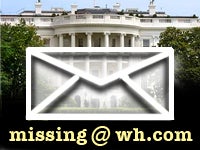 |
A proposed law aimed at improving White House electronic record keeping is facing administration opposition despite a Government Accountability Office (GAO) report that takes federal agencies to task over e-mail management and recommends a comprehensive overhaul of digital document preservation practices.
The Electronics Communications Preservation Act (H.R.5811) would require the National Archivist office to develop new regulations for storing electronic communications, oversee compliance and report to congressional committees on compliance activity.
The bill, sponsored by Rep. Henry Waxman, chairman of the House Oversight and Government Reform Committee, was introduced in early April and approved
this Wednesday by the House in a vote of 286 to 137. It is now before the Senate Committee on Homeland Security and Government Affairs. If approved by committee it will come up for a Senate vote.
The legislation is in response to legal action brought a year ago by two advocacy groups about electronic records keeping and e-mail preservation practices by the Executive Office of the President (EOP).
The National Security Archive and liberal advocacy group Citizens for Responsibility and Ethics in Washington (CREW) are awaiting a U.S. District Court ruling on whether EOP e-mail and backup tapes have been properly archived. White House technical leaders have testified that hundreds of emails are missing from servers.
White House officials promised to veto the bill this week stating it encroaches on presidential constitutional rights in regard to electronic document archiving.
The proposed bill would set rules for establishing standards for presidential management records, and give the Archivist power to determine the amount and type of records in the President’s archival depository and evaluate whether proper management controls were being met.
While the White House is okay with the rules pertaining to federal agency records keeping, the Administration doesn’t like the proposed guidelines for White House record keeping practices.
“The bill would amend the Presidential Records Act (PRA) in fundamental ways that would upset the delicate separation of powers balance that Congress established in 1978 and require the Archivist to intrude, in an excessive and inappropriate manner, into the activities of an incumbent President and his or her staff,” the EOP said in a press statement.
Calls to the White House EOP were not returned by press time.
The EOP also believes it has “the potential to impose substantial costs and reduce the efficiency of records management across the Executive Branch.”
In addition it said the bill would thwart technology use as future solutions could prove more effective.
“While electronic records management systems as defined by the bill could be one method for managing electronic message records, there are likely to be a variety of solutions, especially in future years, that could be more appropriate and effective,” according to the EOP statement.
Noting the law would not impact the Archive’s pending legal action, as it would establish rules for the future, the law is needed to move the federal government out of a paper-based world and into the digital world, Meredith Fuchs, National Security Archive general counsel, told InternetNews.com
“The government has to pick up the pace and find better ways to manage digital documents and messaging,” said Fuchs, adding that the GAO’s specific recommendations are first good steps in improving best practices.
The GAO’s 74-page report outlines how the National Archives and Records Administration (NARA) must provide stronger oversight and direction of electronic email as part of its federal record management responsibilities.
The GAO reviewed NARA’s oversight activities, as well as e-mail policies at four agencies including the Environmental Protection Agency, the Federal Trade Commission, and the Departments of Homeland Security and of Housing and Urban Development.
GAO found that NARA has not conducted agency record inspections since 2000, and has failed to consistently report issues with recordkeeping efforts. The GAO said NARA must develop and implement a “comprehensive oversight mechanism” and that the four agencies evaluated must address weaknesses in records management oversight, policies, and practices.
The report said the four agencies managed email using paper-based processes (storing hard copy printouts) instead of electronic practices though two are moving to an electronic process.
The GOA also examined email recordkeeping practices of 15 senior agency officials at the various agencies. Just seven met compliance requirements while the remaining eight kept email in systems not deemed recordkeeping systems.
“Without periodic evaluations of recordkeeping practices or other controls to ensure that staff are trained and carry out their responsibilities, agencies have little assurance that e-mail records are properly identified, stored, and preserved,” states the GAO report.
Under current law, federal agencies have broad discretion to determine how electronic records and electronic communications are preserved.


